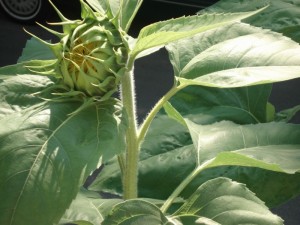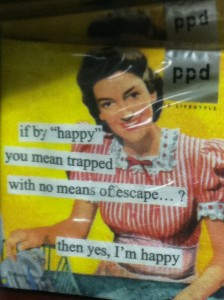“If I was dissociating, I wouldn’t feel so anxious,” she said.
“Or you might – but you just wouldn’t know it,” I replied.
We laughed the PTSD laugh.
This is how survivors talk to one another. We don’t flashback together or complain about our parents. We talk about how our present day symptoms (numbness, anxiety, nightmares and fearfulness) are like gum in the hair, leaks in the roof and jack hammers to the nervous system. They won’t be ignored, are messy and intrude uninvited.
Developmental trauma (http://www.traumacenter.org/products/pdf_files/preprint_dev_trauma_disorder.pdf) is a newer phrase, like Complex Post-Traumatic Stress Disorder. Both basically mean that trauma was repeated, at the hands of loved ones, and throughout childhood while the nervous system is developing.
Or, abuse was the peanut butter. Neglect the jelly. Childhood the bread of our being they were spread upon.
Clinically, adverse childhood events leave scars on mental and physical health throughout the life cycle, as documented in the ACE STUDY (http://www.cdc.gov/violenceprevention/acestudy/).
Being a survivor of childhood abuse is common but talking about the struggle to live, love and parent well after being raised in hell is still rare.
So, meeting a woman to talk writing, life and surviving is still exciting for me.
We were going to a bookstore coffee shop, our version of a VFW, to share techniques for clearing the never ending sink full of dirty dishes in our brain.
A panic attack took precedence. She called to cancel and apologize as though her panic was an insult to me. It wasn’t. I was impressed that she didn’t make up a lie. I know it’s hard to be that honest.
Coping well and being calm during crisis can be a personality trait, like always wearing dangly earrings. It’s difficult to give up because the perks for being accomplished and productive are so good and the rewards for nurturing the self so invisible and low.
Few say, “Oh, you said no, refused to be have sex when you weren’t in the mood or went pee without making yourself hold it for three hours. Nice job.” This can be the work though of survivors though.
To be emotionally available and responsive to others, it turns out I have to be emotionally present and responsive to myself. This is not good news and I recoil a little inside every time I remember.
The spilling of actual emotions is as appealing as letting snot leak from the nose or pus ooze from a cut. My default setting is to greet my feelings with the same “What the fuck do you need now?” response I received in childhood.
But I’m not a child anymore.
“The only abuser left in your life,” a yoga teacher once said to me in a private session, “Is you.” You need to parent yourself the way you wish you had been parenting.” I wondered who would keep me in line if I got all soft and slouchy. That was a decade ago.
Now, I slip into high self-hate and low self-acceptance when I’m post-traumatically stressed out (parenting, in a relationship, having menopause symptoms or when a relative dies).
Emotional health requires staying present at least some of the time. Staying present is a challenge for seasoned meditators staring at sunsets and sunflowers. For those who were helpless child, staying present with violation at the hands staying present was impossible. We learned how to do the opposite.
We rock at staying absent.
As a child, I air lifted myself out of my body and right into my brain. I played dead or become one with the ceiling. It felt like hiding in a corner while the house was robbed. I was the house. Relatives were the robbers. Now, I am learning to give up my favorite coping skills. And when I do, all of those old sensations are stored in the stillness. They waited for me to mature and center. That seems so mean.
But this is the work and sometimes it pisses me off that my energy is spent on this.
I often look for an easier way. I wonder how old I’ll be when I’m done unraveling the knots in my nervous system.
Often, I’m pissed.
If X didn’t abuse and Y responded better and Z never happened in the first place, my life would be easier, better and happier.
However, I remember social change NEVER happens because white people say, “You want to sit on the bus too?” to blacks, or because straight people say, “I’m not getting married until gays can.”
Breaking the cycle and fighting for justice is always an uphill battle.
Still, I’m sick of being sick of the process.
I’ve been an adult longer than I was a child and I don’t want to be impacted. Can’t I at least circle new drains or upgrade the scenery on this repeat track? I don’t want to have to do regular exercise to keep off the emotional pounds.
I feel burdened, exhausted and martyred at times, wearing an itchy wool coat I can’t disrobe. I imagine how it would feel for cool air to lift my arm hairs but I don’t have the skills to disrobe.
It is not the presence of bad (abuse) but the absence of good (love, attachment, boundaries, modeling) that injures children into adulthood. Most of have learned not to drink, abuse and be violent (yay us) but the more subtle aspects of self-care and recovery are healthy nurturing, interdependence, making time for love and joy. Those can be mysterious.
What I know is talking to other survivors helps most. We can laugh about missing the “ease” of numbness while knowing the agony of being emotionally blunted isn’t worth the trade off. We can share how strenuous the process feels and is. And we can learn from each other.
This new friend risked being authentic and vulnerable, let down her walls and defenses and showed me what intimacy is. Because she was honest about her struggle I was able to be more honest with myself and get to my own yoga mat later in the day. We know how we are exquisitely skills at denying and ignoring our bodies, needs and sensations, which helped us survive childhood. We know we need constant reminders to come back into ourselves now. We are responsible for the care and tending of our souls now which you wouldn’t think would be so easy to forget… but it is.
Talking with her, I was reminded, survivors have symptoms. They can linger for a long time. That’s just how it is. I don’t think any less of her. I felt no judgment, no hating and no rebuke. We helped each other.
Most days, we are high-functioning warriors building and rebuilding lives and selves. On those days, there is no shortage of people to talk with and relate to and bond with.
But on the days we feel tipped over inside by trauma, we need one another, people who get it as though we are sharing the same orange and saying, “It’s juicy, tangy, messy and sweet.” It’s a sensory, tactile knowing not theoretical or abstract or requiring a co-pay or short educational asides.
I crave more of this. I have always craved this. I want to be able to say and hear others talking about the important and unglamorous healing of developmental trauma.
I want to hear people who document and describe what breaking the cycle actually requires. If it were easier, fewer people would be drinking, smoking and in bad relationships.
We aren’t children anymore. True. But it doesn’t mean, as adults, we magically learned better coping skills and habits of love.
Plus,we are never too old to be reminded we are not alone.
Dedicated to – you know who you are! Thank you!
You Matter Mantras
- Trauma sucks. You don't.
- Write to express not to impress.
- It's not trauma informed if it's not informed by trauma survivors.
- Breathing isn't optional.
You Are Invited Too & To:
- Heal Write Now on Facebook
- Parenting with ACEs at the ACEsConectionNetwork
- The #FacesOfPTSD campaign.
- When I'm not post-traumatically pissed or stressed I try to Twitter, Instagram & Pinterest.
I hear you !
Margaret
I’m so glad and grateful!